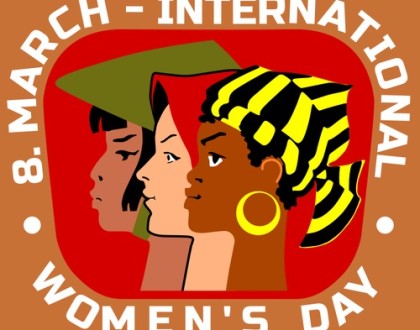International Women’s Day and Women’s History Month: Toward a year-round set of practices of gender equity

There are two kinds of people in this world: those who celebrate and enjoy Valentine’s Day, and those who think that one day of showing love to our partner is simply not enough. I’ve actually met at least one person in the second category and although this may sound silly and irrelevant, it really isn’t. Why do we pick one day, or one week, or even one month to celebrate something or someone?
If we think about International Women’s Day or Women’s History Month, they are opportunities to be more intentional about celebrating women’s contribution throughout time. In 1909, only one day was dedicated to the celebration of Women’s History in the United States. Then, in 1981, Congress allowed each president to dedicate a whole week the celebration of women. Finally, six years later up to today, the US celebrates women during the entire month of March. But, is one month enough? And what about the only one day given to celebrating women worldwide, International Women’s Day on March 8?
Celebrating women should be more than mentioning this topic in classrooms or organizing fun activities for kids with that theme in mind, although there is nothing wrong with those. Celebrating women should also be about us acknowledging the various issues women face today and advocating, every single day of the year, for their eradication.
One of these issues is human trafficking and violence against women. Information released by the Polaris Project reveals that of all the victims of human trafficking around the world, 55% of these victims are women and girls. It must be noted that “victims of sex trafficking can be U.S. citizens, foreign nationals, women, men, children, and LGBTQ individuals”. Human trafficking is not only a global issue but is also present right here in the US. In 2007, 14,588 cases of sex trafficking were reported and, among these cases are women and girls who have been coerced, mistreated, manipulated and taken advantage of.
Women also face challenges in the workplace. In 2015, the Boston Globe released an article about the wage gap that still exists here in Massachusetts. One of the interesting points discussed in the article was the fact that, because a woman made less than a potential employer expected, it was assumed that this was due to underperformance when it was actually caused by that specific wage gap.
In terms of health and wellness, women also face challenges. A report released by the UN in 2008 shows that there seems to be a strong correlation between gender equity and health. A woman, for example, who is not empowered, could be at risk for diseases. This is something we understand here at YW Boston, which is why we establish programs like the Women’s and Girls’ Health programs, providing information on health to them and thus empowering them.
Celebrating women implies being constantly aware of the challenges women face. It implies being conscious of the choices that we make on a day to day basis, choices that can support or destroy the underground sex industry. It implies being aware of and speaking against the rape culture that exists in this country and especially in our colleges and universities. It implies equal participation of fathers in the home and lives of their families. It implies advocating for closing of the wage gap. It implies educating oneself on these issues and educating others as well. It implies identifying one or two issues we are particularly passionate about, learning more about them as well as finding ways to act against them. Celebrating International Women’s Day and Women’s History Month implies, not only honoring the contribution of women in the past but also creating an environment ideal for the contribution of women and girls of today and of the future.
